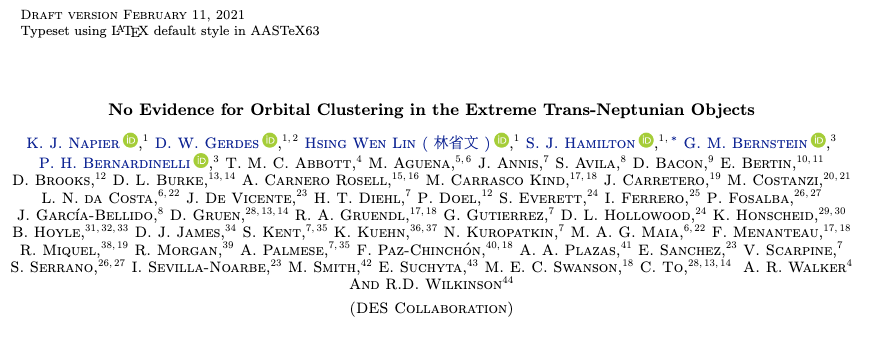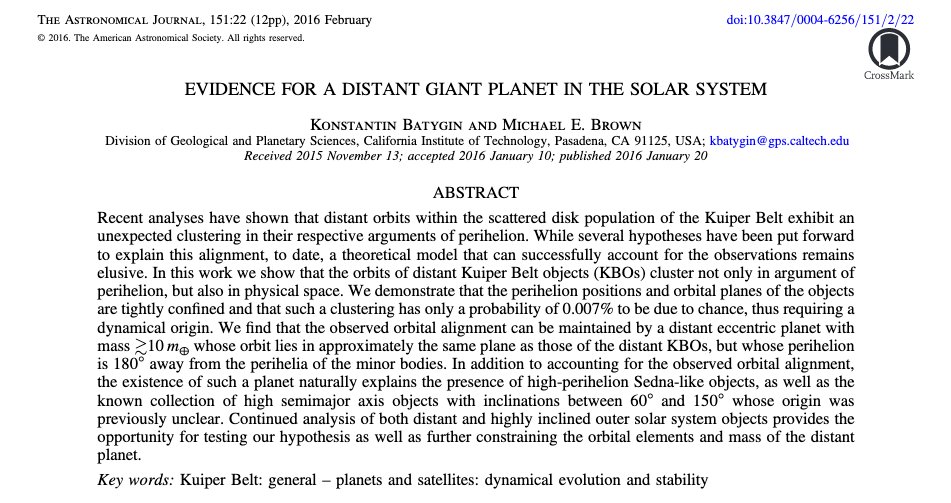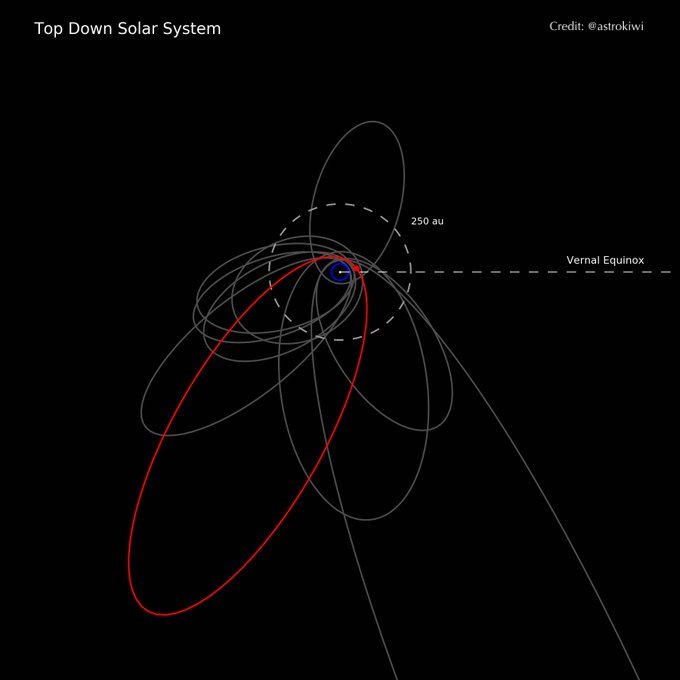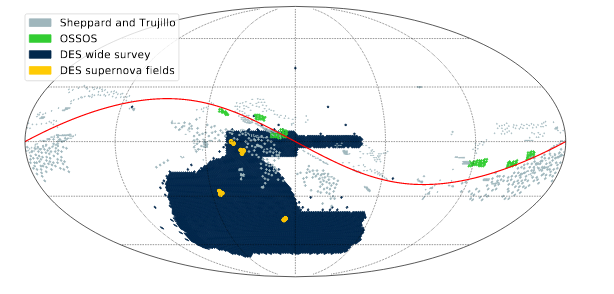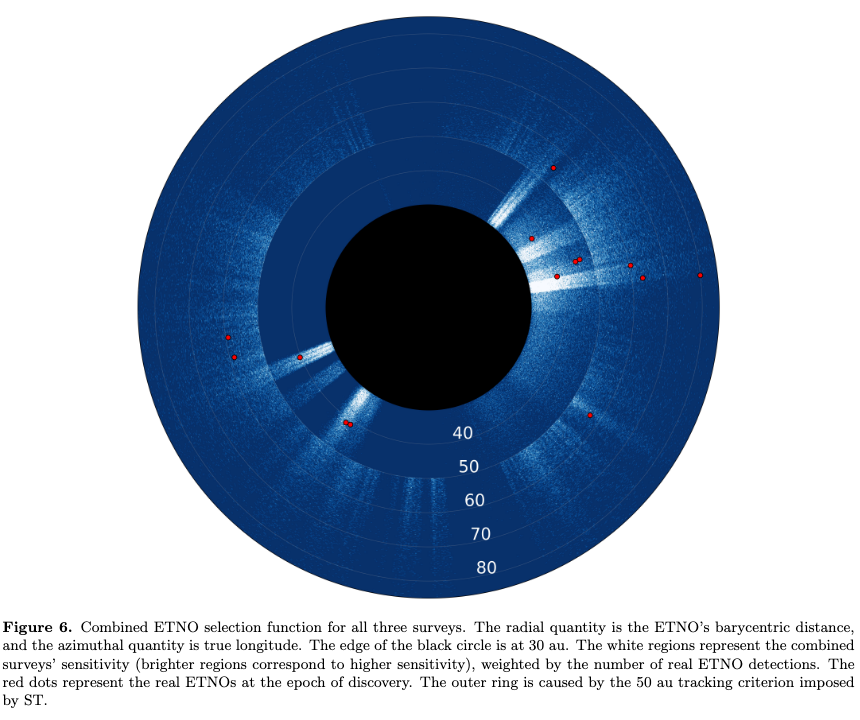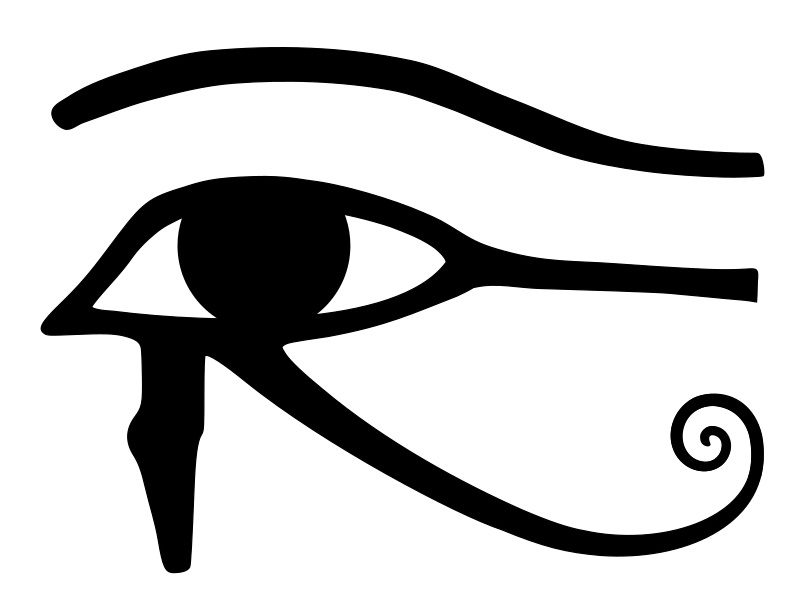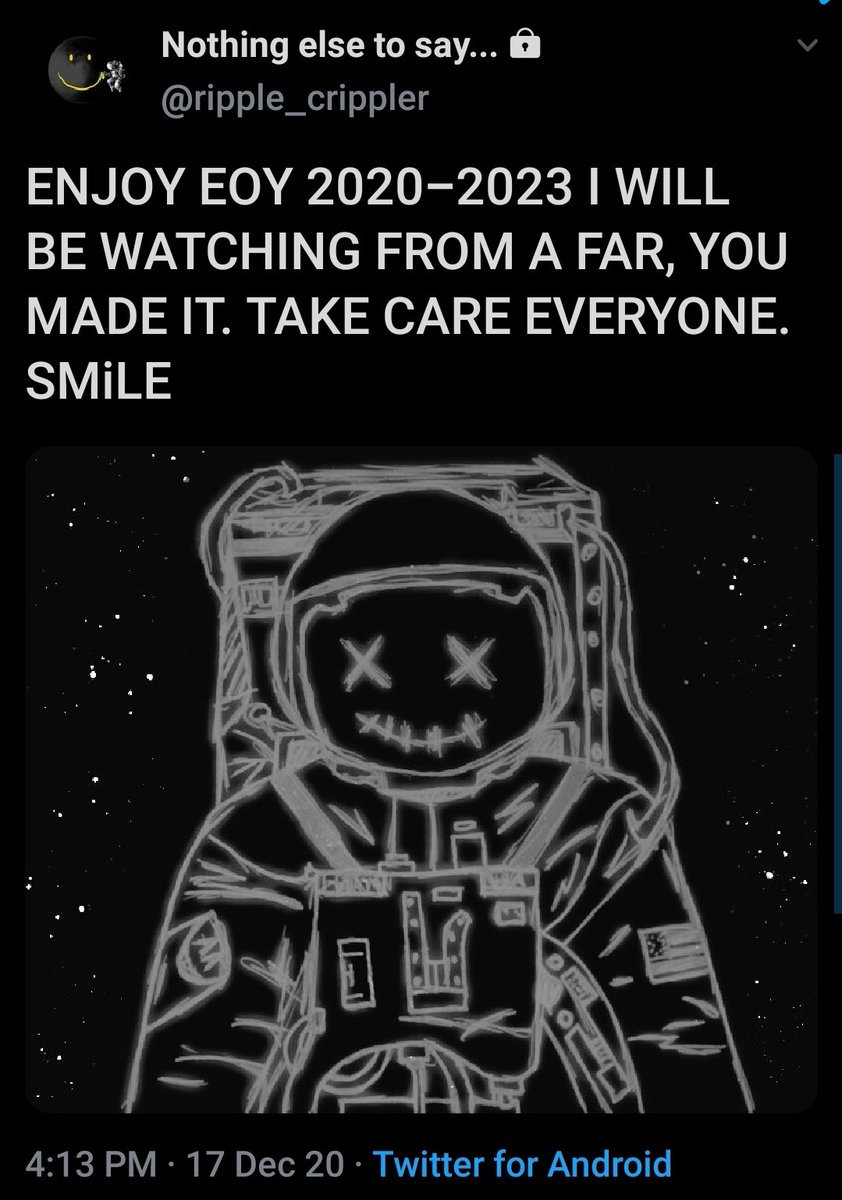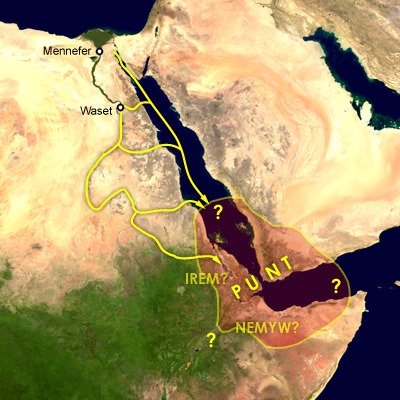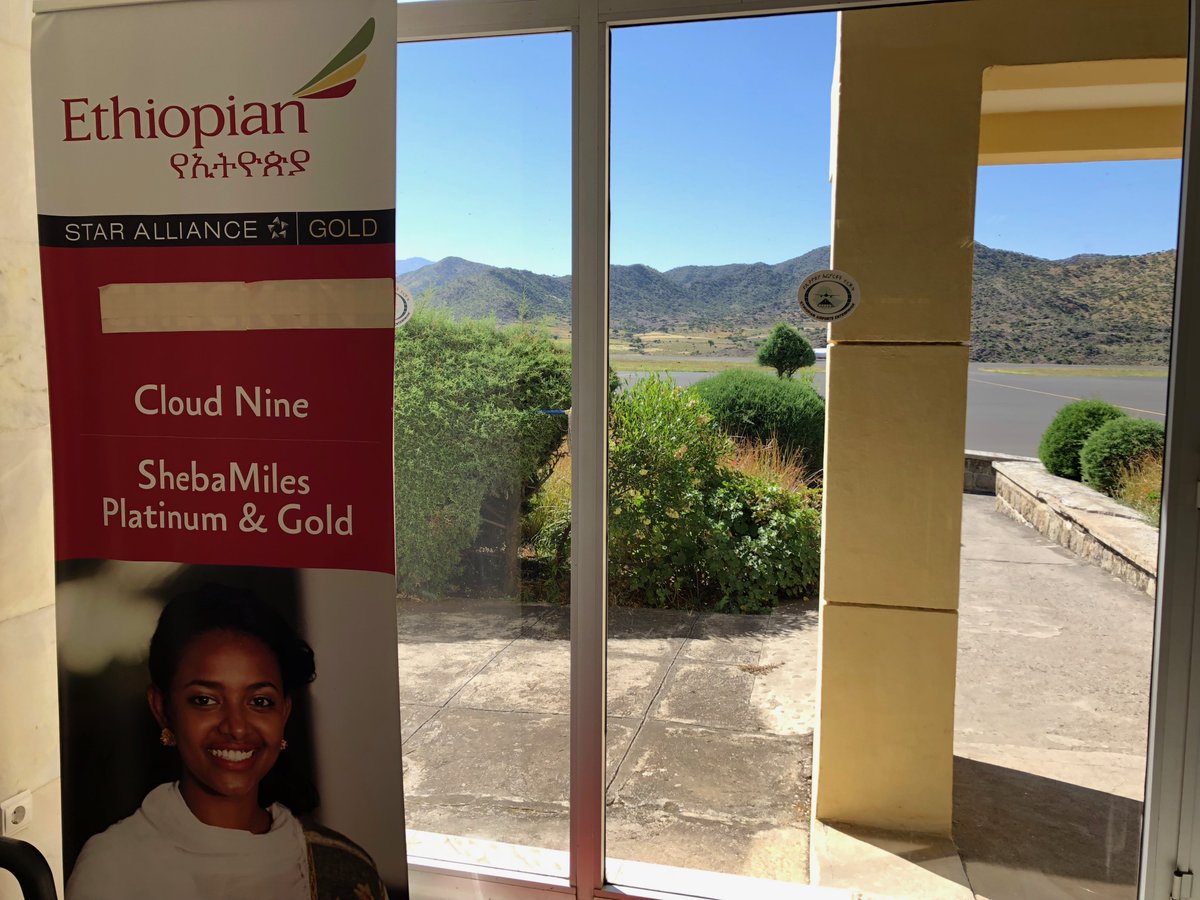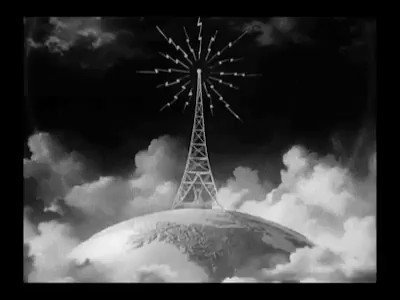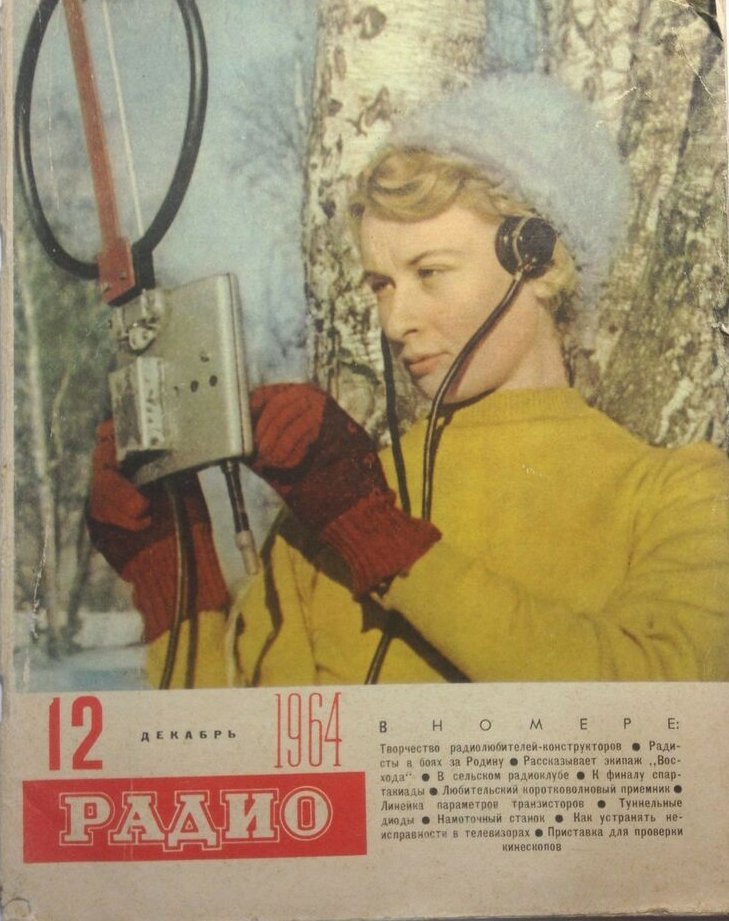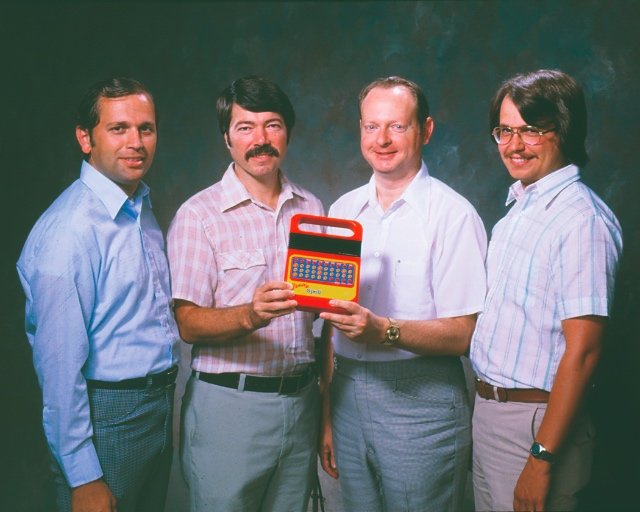First, some background.
In 2014, astronomers Scott Sheppard and Chad Trujillo noted a weird clustering in the orbital elements of the most distant Kuiper Belt Objects they'd found. They hypothesized sorta in passing that a new planet could be responsible.
Enter Batygin & Brown
Mike Brown & Konstantin Batygin originally set out to DISPROVE the new planet hypothesis!
But instead, their simulations suggested a new planet, & even predicted its properties!
The resulting paper set off the biggest planetary debate of the century since Pluto's demotion.
What's the debate?
Well, the argument for the last five years has all centered around the fact that you find objects where you look in the sky.
No surprise there, right?
This problem is complicated though, because the objects we're talking about have some of the most distant and elongated orbits of all the objects in the solar system.
We only find them when they're closest to the Sun, when they're at their brightest.
So if we only look at certain parts of the sky at certain times of year, we'll only find the objects that are in that part of the sky, at that time of year.
Which can lead to the APPEARANCE of clustered orbits that isn't actually REAL.
This effect is called selection bias.
The problem, and the root of the Planet Nine debate, is that most surveys don't make their selection biases publicly available.
You can't determine whether a particular object contributes to the clustering effect if you don't know the circumstances under which it was discovered!
The
@OSSOSurvey has made this argument for the past five years. Their survey is the most meticulously documented and characterized survey I know of.
They know their selection biases EXTREMELY well. And that's thanks to
@astrokiwi @sundogplanets and many others.
Now onto this most recent study.
A big issue with ALL of these studies is the small number of objects they consider.
The original hypothesis used 6.
OSSOS discovered 5.
My group with
@theDESurvey discovered another 6.
A handful more were discovered by others.
As you can imagine, accounting for the selection biases of so many distinct groups is extremely difficult.
@kjnapes led a practically heroic effort to effectively combine OSSOS,
@theDESurvey, and Sheppard & Trujillo's survey into one mega-survey.
The end result?
We're finding these very distant objects exactly where we expect to, based on where the telescopes pointed and when.
No funny business happening here. Therefore, no need for a new planet to explain anything!
Now, there are a lot of dynamical arguments about Planet Nine (as opposed to the observational one here).
I'm not going to get into those bc 1) I'm not a dynamicist and 2) I've been out of the field for almost two years.
But this is a hit to the Planet Nine hypothesis for sure
Anyways, huge congrats to
@kjnapes @dAArkEnergy and the rest of the group on this fantastic paper! I'm so happy to see it finally out in the world!
https://t.co/9Ggv9vRy5E

